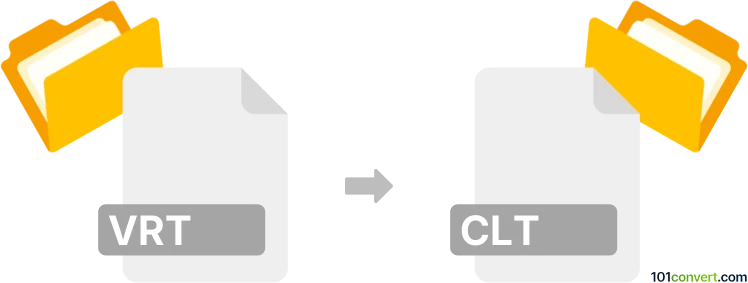Convert VRT to CLT
How to convert vrt to clt. Possible vrt to clt converters.

How to convert vrt to clt file
- Accounting and taxes
- No ratings yet.
Both .vrt and .clt files seems to be used by Autodesk software, which means that if any program is capable of somehow transforming these two files, it would be it. That's is, if this vrt to clt conversion is actually possible and useful, which we could not actually verify.
101convert.com assistant bot
2mos
Understanding VRT and CLT file formats
The VRT file format, short for Virtual Dataset, is commonly used in geospatial data applications. It is an XML-based format that describes how to process and display raster data, often used with GDAL (Geospatial Data Abstraction Library). VRT files do not contain actual data but provide a way to reference and manipulate other datasets.
The CLT file format, on the other hand, is less common and can refer to different types of files depending on the context. In some cases, it is used for color lookup tables, which are used to map colors in digital images. In other contexts, it might be associated with specific software applications for custom data storage.
How to convert VRT to CLT
Converting a VRT file to a CLT file can be challenging due to the differences in their purposes and structures. The conversion process typically involves extracting the necessary data from the VRT file and then formatting it into a CLT-compatible structure.
Best software for VRT to CLT conversion
One of the best tools for handling VRT files is GDAL, which provides a suite of utilities for processing geospatial data. However, direct conversion to CLT is not straightforward and may require custom scripting or programming to achieve the desired result.
For users familiar with programming, using a combination of GDAL and a scripting language like Python can be effective. You can use GDAL to read and process the VRT file, then write a script to output the data in a CLT-compatible format.
Steps to convert using GDAL and Python
- Install GDAL and Python on your system.
- Use GDAL to read the VRT file and extract the necessary data.
- Write a Python script to process the extracted data and format it into a CLT file.
- Save the output as a CLT file.
While this method requires some technical expertise, it offers flexibility and control over the conversion process.
This record was last reviewed some time ago, so certain details or software may no longer be accurate.
Help us decide which updates to prioritize by clicking the button.